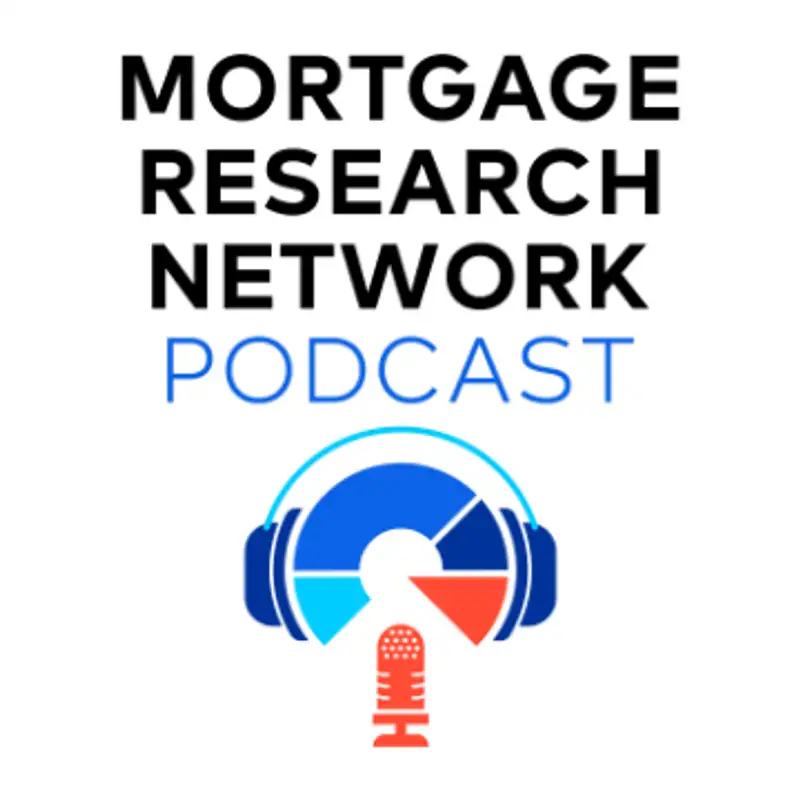The $2,370 Problem: Taming Soaring Homeowners Insurance
Welcome to the Mortgage Research Network Podcast. This podcast brings you the latest in mortgage and real estate news 3 times a week. The audio is AI generated, but content is fact-checked by me, Tim Lucas, editor of MortgageResearch.com and a former mortgage professional. And with me is Craig Berry, a mortgage originator with 25 years experience.
Hi everyone, good to be here.
Craig, homeowners insurance premiums have skyrocketed 70% in just five years. That's nearly triple the increase we've seen in other housing costs. And today, we're going to break down why this matters for every single person who owns or dreams of owning a home.
That means we're looking at an 11% increase just in the past year alone, right?
Exactly. The average homeowner is now paying nearly $2,370 per year just for insurance. That's equal to about 10% of their monthly housing payment.
So what's driving these massive increases? Because this seems way out of proportion with other costs.
Well, there are several factors at play. Climate change is a big one. We're seeing more frequent and severe natural disasters. But there's also the rising cost of construction materials, labor shortages, and even supply chain issues affecting replacement costs.
And I imagine most people don't really understand what their insurance actually covers, do they?
That's right...and this is where it gets really interesting. Most standard policies have four main components of coverage. Those would be structure, belongings, liability, and living expenses after a claim. But what's NOT covered might actually be more important than what is.
Well that sounds ominous. What exactly are we talking about here?
Standard policies don't cover flooding AT ALL. That's a separate federal program entirely. They also don't cover earthquakes or basic maintenance issues. Even for what they do cover, most policies only pay depreciated value unless you specifically pay extra for replacement cost coverage.
You know, that reminds me of something I heard about California wildfire victims discovering they were severely underinsured when it came time to rebuild.
Oh man, that's exactly right. And it's becoming a huge issue because construction costs have gone through the roof. What might have been adequate coverage five years ago wouldn't come close to rebuilding your home today.
Let's talk about these four main components of coverage a bit more. What are people actually getting for their money?
So first, you've got coverage for the structure itself. Your house and other buildings on your property. Then there's personal belongings, typically covered for 50% to 70% of your home's insured value. Third is liability protection, which starts at $100,000 but honestly should probably be higher for most people. And finally, you've got additional living expenses if you can't stay in your home due to a covered disaster.
That liability number seems pretty low in today's world.
Right? One serious accident on your property and that $100,000 could disappear real quick. And here's something most people don't think about. If your dog bites someone, that's coming out of your liability coverage.
Speaking of costs, let's circle back to these rising premiums. How are people supposed to handle these increases when they're already struggling with higher mortgage rates and property taxes?
That's the question everyone is asking. Even if new homebuyers can afford principal, interest, taxes, and mortgage insurance, the cost to insure the home is often the straw that breaks the camel's back. If you have a mortgage, you HAVE to have insurance. The lender requires it to protect their investment.
And that's where escrow accounts come in, right?
Exactly. The lender collects a portion of your insurance and tax payments each month, holds it in escrow, and pays the bills when they're due. But here's the problem. This system can mask how much these costs are actually increasing until suddenly your monthly payment jumps up at your annual escrow analysis. Even though the mortgage industry touts that your payment will never increase if you have a fixed rate mortgage, that's becoming less and less true each year as insurance, and quite frankly, taxes, are increasing faster than ever before.
You know what's particularly concerning about all this? Insurance companies are starting to pull out of certain markets entirely.
Florida is the perfect example. Some major insurers have completely stopped writing new policies there because of hurricane risk. And when insurance companies pull out, it creates this downward spiral where fewer options lead to higher prices, which leads to fewer options... you get the picture.
So what's the solution here? Because this trend doesn't seem sustainable.
Well, in the short term, homeowners need to be much more proactive about understanding and reviewing their coverage. Make sure you're adequately insured, but also look for ways to reduce costs through things like higher deductibles or bundling policies. Those who are buying should get a quote from an insurance agent on the home they want, maybe even before making an offer. They don't want to be blindsided by an astronomical insurance premium once they have an accepted offer and can't back out.
And in the longer term?
Honestly, we might need some kind of systemic change. Whether that's more government intervention in the insurance market, better building codes to reduce risk, or new insurance models altogether. But one thing's for sure, this issue isn't going away anytime soon.
So the key takeaway here is really about being informed and proactive, right?
Exactly. Understanding what you're paying for, making sure you have adequate coverage, and staying ahead of these trends rather than just accepting whatever premium increase comes your way. Because at the end of the day, insurance is too important and too expensive to just put on autopilot. That's about all the time we have for this topic, but we go into even more detail on the site. To learn more, type insurance premiums into the search bar at Mortgage research.com. We'll see you next time on the Mortgage Research Network Podcast.
